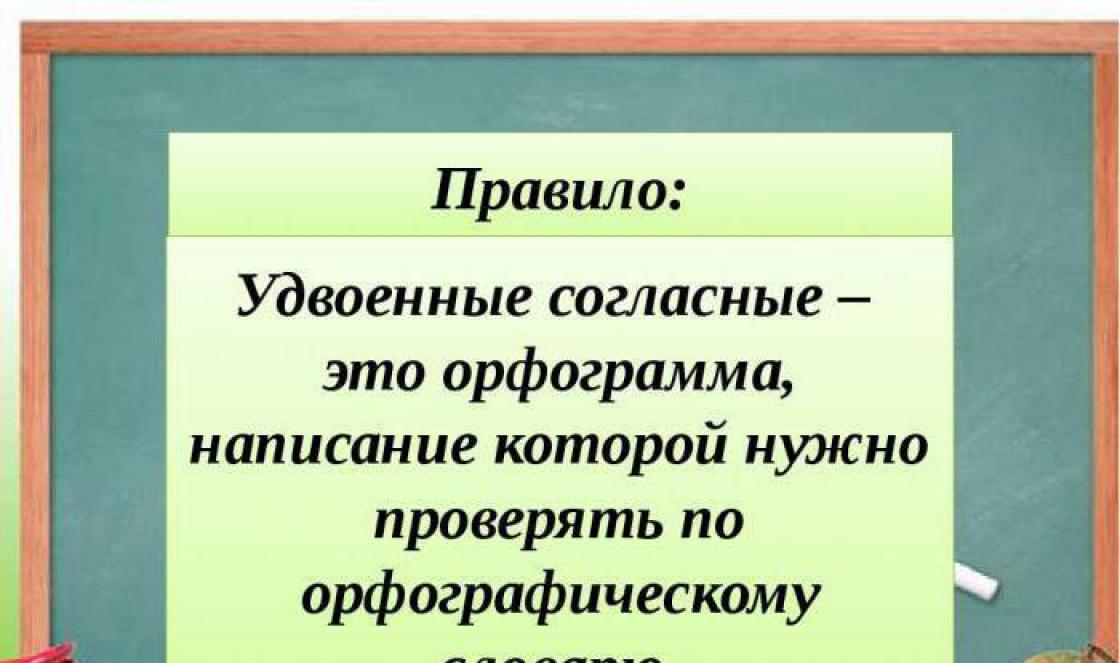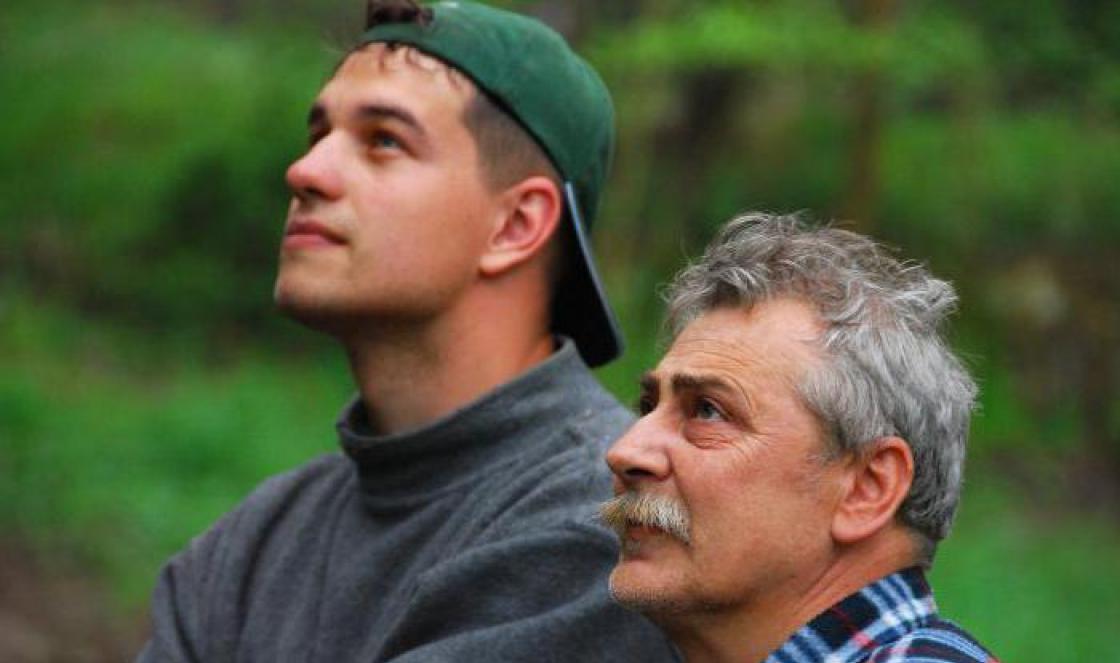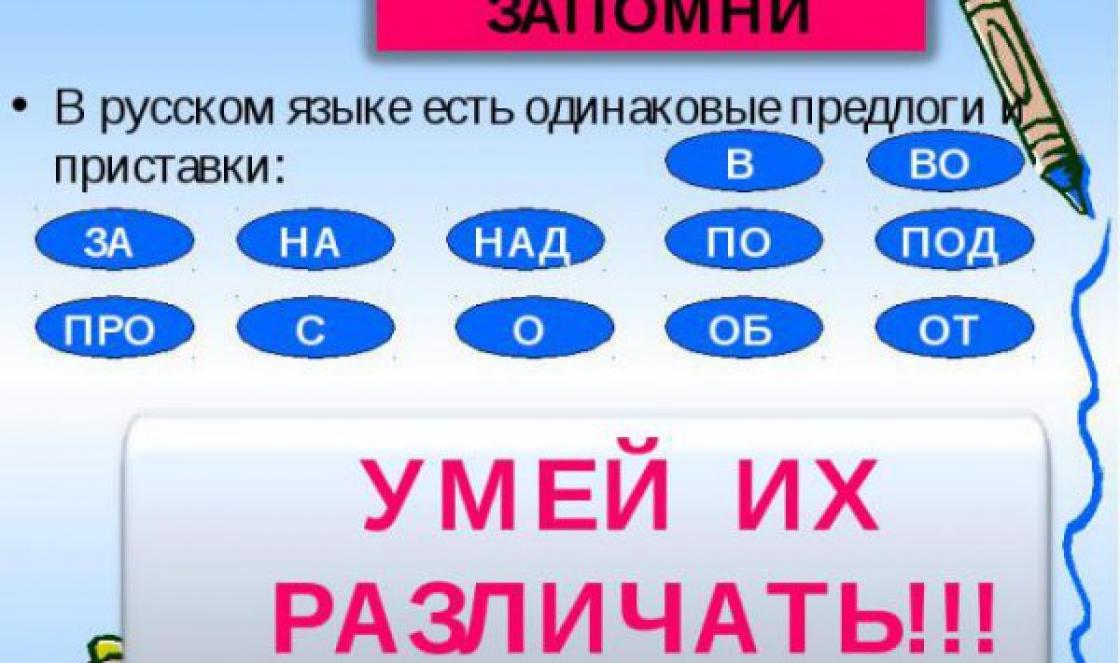Tatyana Filippova
In Veliky Novgorod, there is an acute shortage of chemical workers. Akron has taken the first step towards solving this problem.
There is a need
For many years now, the heads of Novgorod enterprises have been talking about how difficult it is to find qualified employees for production. Akron OJSC is no exception here, which has to make great efforts to find new personnel.
Every year, Acron conducts a whole campaign to attract university graduates to work, - says Olga Babina, Deputy Head of Human Resources at Acron OJSC. - We are looking for personnel all over the country, we support young specialists in every possible way. More than 50 students from different parts of Russia become Acron scholarship holders every year. When hiring non-resident university graduates, the company compensates them for the cost of renting housing, provides an opportunity to live in a house for young professionals.
In Veliky Novgorod itself, it is very problematic to find a young chemical technologist who wants to work in production. Last year, the University of Novgorod did not even have a set of applicants for the specialty "Chemistry" because of the low demand for this profession. Those who would like to connect their lives with chemistry strive to get into prestigious metropolitan universities. But it is in the regions that there has been a trend towards the development of the production sector, and not only the chemical one. The demand from employers for many technical specialties is growing every year. The situation has long required the active participation of universities, employers, and authorities. True, each of the parties is convinced that the first step should be taken by "colleagues".
Step forward
And this step was taken by Akron OJSC, having developed a personnel project together with NovSU, within the framework of which the Department of Chemistry and Ecology undertakes to train students in the specialty "Chemistry", and "Akron" takes students to practice with the possibility of further employment. In 2011, it is planned to recruit a course of 20 students.
During the year, in Veliky Novgorod and the regions of the region, meetings were held with chemistry teachers, parents and future graduates, at which they were told about the newly opened specialty. Currently, 20 people are attending free preparatory courses at the university. Optional classes in chemistry are held at school No. 2 and the Istok gymnasium.
According to the staff of the Department of Chemistry and Ecology, the system of higher vocational education should meet the real demands of the labor market, more time should be devoted to the practical development of knowledge. Acron undoubtedly provides such an opportunity for chemists.
The training of technical personnel is a long and costly process. But production requires a highly skilled approach. One way or another, in the foreseeable future, all participants in the process of training personnel, including industry workers themselves, will have to take on the burden of educating specialists. The influx of newcomers will be sharply reduced - the small generation of the 1990s is entering the scene. This means that you will have to make every effort to bring the existing staff "to the mind."
In March 1967, Novgorod chemists issued the first product of the enterprise - methanol.
History, as you know, does not know the subjunctive mood. Nevertheless, let's imagine what Novgorod would look like now, if half a century ago an event that stood on a par with the decisive dates in the history of ancient history had not happened. Novgorod land.
If it wasn't for you...
One can only guess about the possible, but without the appearance of Akron, Novgorod could still remember its former greatness within the boundaries of the roundabout rampart. The largest Western microdistrict would not have arisen on the site of a wasteland. There would be no Pskovskaya, Rakhmaninov, Derzhavin streets, Nevsky embankment, a dozen kindergartens, hospitals and clinics. As well as the House of Culture of the enterprise - today the largest concert venue in the city. Motorists stood in a wild traffic jam without the Grigorovsky viaduct. What can we say about biological treatment facilities - a strategic facility specially built for Akron. And all this is only thanks to the labor and means of the team of the chemical giant, excluding taxes to the treasury of the city and region. Represented? Fortunately, everything happened, and the appearance of Akron knocked the dust of centuries off the patriarchal provincial town. And it all started back in 1958, when the Minister of Chemical Industry of the USSR Leonid Kostandov decided to revive the city destroyed by the war - people had nowhere to work. On July 25, 1958, a decree was issued on the construction of a chemical plant in Novgorod.
The first directorate consisted of four people and was located in a room where there was only a stove, a bench and wooden goats. No phone, no car, no experience. At first, even the forest on the site was cut with axes. In 1962, they wanted to close the construction site. saved the situation new director Grigory Kozlov, brilliant organizer. Under him, the first houses for chemists began to be built. As Vera Mishina, the legendary personnel officer of Akron, recalled, in November 1964, right on the subbotnik, she signed a paper on the creation of Mendeleev Street, from which the Western residential microdistrict began. In 1966, construction became the All-Union shock Komsomol. Trains with demobels and builders were pulled to Novgorod. Many of them are now reading these lines. And their children and grandchildren, already native Novgorodians, walk along the streets, squares and embankments built by chemists. Without any subjunctive...
Happy birthday!
In 2017, Acron celebrates its first 50th anniversary. Why fifty, you ask? Why is the countdown not from 1958, not from 1961? Everything is simple here. Just as a ship leaves the slipway with a bottle of champagne smashed against its side, so an industrial enterprise begins its history from the moment the first product is received. "Name day" "Akron" - March 1967. Trust No. 43 "Novgorodkhimstroy" started construction of the first methanol process shop in 1961. The battle with the Novgorod swamps lasted for six years, in which everything sank. They worked by hand, knee-deep in mud and water. By right, one of the builders, Nikolai Khvatov, was awarded the title of Honorary Citizen of Novgorod.
The first raw methanol was obtained on March 9 at 5 am. Here are the names of those through whose hands Acron's first product passed: Galina Boeva, Alexei Zakharov, Ivan Poputnikov, Alexander Puchkov, Lyudmila Vagicheva, Valentina Belova, Nikolai Rychkov, Zoya Tolstikova. During the first month, 1,100 tons of rectified methanol were shipped for 209 thousand rubles. An interesting fact is that the entire production plan of the enterprise then consisted of the manufacture of non-standard equipment in the mechanical repair production and amounted to 5.2 thousand rubles. With the launch of the workshop, the plan was overfulfilled by 41 times! The second technological line started operating in June, the third - in September of the same year. Already in the fall, the workshop reached its design capacity. Today, the first-born produces 100 thousand tons per year.
You are our gold  Almost 40% of shop workers have higher education. For half a century, 10 Methanol residents have been awarded state awards, 58 - departmental ones. Interestingly, the first head of the workshop was a woman - Valentina Aleksandrovna Lashkina. The future leaders of Akron, Yuri Ivanov, Sergey Tsvetkov, Ivan Antonov and Viktor Kochubey, worked here. The dynasties of the Semyonovs, Kornyukhins, Samoilovs, Alyaevs, Petrovs can be called personnel gold.
Almost 40% of shop workers have higher education. For half a century, 10 Methanol residents have been awarded state awards, 58 - departmental ones. Interestingly, the first head of the workshop was a woman - Valentina Aleksandrovna Lashkina. The future leaders of Akron, Yuri Ivanov, Sergey Tsvetkov, Ivan Antonov and Viktor Kochubey, worked here. The dynasties of the Semyonovs, Kornyukhins, Samoilovs, Alyaevs, Petrovs can be called personnel gold.
At the anniversary evening of meetings, the Methanol veterans habitually responded to the song wish for a freaky mood with a friendly “cheers”. These people always work out together. One word - first! Acron will celebrate its anniversary in May, closer to Chemist's Day. But, like yesterday and today, the company will continue to invest millions of dollars in hometown and, of course, our own productions. An Agreement on cooperation with the city administration was signed, new investment and social projects. Let there be more of them, because the appearance of a new city park and the modernization of Akron's workshops are components successful development and contribution to the great future of Veliky Novgorod. In the meantime, the industrial locomotive is heading towards its anniversary at full speed!
Nikolai MOROZOV
Photo by Acron PJSC
To narrow the search results, you can refine the query by specifying the fields to search on. The list of fields is presented above. For example:
You can search across multiple fields at the same time:
logical operators
The default operator is AND.
Operator AND means that the document must match all the elements in the group:
research development
Operator OR means that the document must match one of the values in the group:
study OR development
Operator NOT excludes documents containing this element:
study NOT development
Search type
When writing a query, you can specify the way in which the phrase will be searched. Four methods are supported: search based on morphology, without morphology, search for a prefix, search for a phrase.
By default, the search is based on morphology.
To search without morphology, it is enough to put the "dollar" sign before the words in the phrase:
$ study $ development
To search for a prefix, you need to put an asterisk after the query:
study *
To search for a phrase, you need to enclose the query in double quotes:
" research and development "
Search by synonyms
To include synonyms of a word in the search results, put a hash mark " #
" before a word or before an expression in brackets.
When applied to one word, up to three synonyms will be found for it.
When applied to a parenthesized expression, a synonym will be added to each word if one was found.
Not compatible with no-morphology, prefix, or phrase searches.
# study
grouping
Parentheses are used to group search phrases. This allows you to control the boolean logic of the request.
For example, you need to make a request: find documents whose author is Ivanov or Petrov, and the title contains the words research or development:
Approximate word search
For approximate search you need to put a tilde " ~ " at the end of a word in a phrase. For example:
bromine ~
The search will find words such as "bromine", "rum", "prom", etc.
You can optionally specify the maximum number of possible edits: 0, 1, or 2. For example:
bromine ~1
The default is 2 edits.
Proximity criterion
To search by proximity, you need to put a tilde " ~ " at the end of a phrase. For example, to find documents with the words research and development within 2 words, use the following query:
" research development "~2
Expression relevance
To change the relevance of individual expressions in the search, use the sign " ^
" at the end of an expression, and then indicate the level of relevance of this expression in relation to the others.
The higher the level, the more relevant the given expression.
For example, in this expression, the word "research" is four times more relevant than the word "development":
study ^4 development
By default, the level is 1. Valid values are a positive real number.
Search within an interval
To specify the interval in which the value of some field should be, you should specify the boundary values in brackets, separated by the operator TO.
A lexicographic sort will be performed.
Such a query will return results with the author starting from Ivanov and ending with Petrov, but Ivanov and Petrov will not be included in the result.
To include a value in an interval, use square brackets. Use curly braces to escape a value.
After the St. Petersburg court allowed the Akron structure not to pay compensation to the budget of the city of Apatity, the owner of this holding, Vyacheslav Kantor, was suspected of "manipulating justice."
The court sided with the oligarch
As is known from Russian legal practice, to win state structures in domestic courts is extremely difficult. However, it seems that the owner of the Akron agrochemical holding, Vyacheslav Kantor, can do it.
So unexpectedly, the Thirteenth Arbitration Court of Appeal in St. Petersburg canceled the decision of the Arbitration Court of the Murmansk Region, according to which it was supposed to recover more than $ 6 million from the North-Western Phosphorous Company (NWPC), which is part of the Acron group, in favor of the administration of the city of Apatity.
An attempt to challenge the decision of the Murmansk arbitration in St. Petersburg speaks of possible “lobbyist maneuvers”. After all, Kantor, in order to persuade the 13th Arbitration Court of Appeal to the side of the NWPC, could well use his political influence.
City officials demand compensation from Akron
The confrontation between the administration of the city of Apatity and the NWPC has been going on for about half a year. The city management continues to demand $6.5 million from Akron's structure.
The authorities of Apatity want to receive this money as interest for the use of other people's funds from January 1, 2008 to May 14, 2014, taking into account the failure to comply with the terms of the license agreement in terms of investing $ 18 million in the socio-economic development of the city over 15 years.
According to the publication in the administration of Apatity, NWPC has not transferred a single payment for six years. It turns out that officials from Apatity are quite legally demanding compensation from Mr. Kantor's holding. But it seems that the owner of Akron has found "his own approach" to the judges of the St. Petersburg arbitration, so now the municipalities, it seems, will not receive their legitimate money.
Kantor's interests in the Murmansk region
As it turned out, the Akron structure had previously actively raised funds to build its industrial enterprises in the Murmansk region.
After all, NWPC is engaged in the development of the Oleniy Ruchey deposit and the creation of a mining and processing plant (GOK). The construction of the mining and processing complex began in 2009 after the development of the project and the receipt of a positive opinion from the Glavgosexpertiza of Russia.
But already in May 2012, a quarry for the extraction of apatite-nepheline ore was put into operation. It would seem that from now on, the leadership of the NWPC should have completely paid off with the municipal authorities, but it seems that this will never happen.
How NWFC deceived the citizens and the state
Local bloggers have already recounted the details of how in 2006 NWPC, a subsidiary of Vladislav Kantror's Acron, won a license tender to develop the Oleniy Ruchey and Partomchorr apatite deposits.
Far from the last formal argument why the licenses went to Kantor's company, and not Andrey Guryev's Apatit OJSC, were social obligations to the cities of Kirovsk and Apatity, which were voluntarily included in the application from NWPC.
They provided that during the entire period of the license, the company would invest in the social infrastructure of these cities, and quite decently (up to $ 2 million a year). And if these obligations to Kirovsk are fulfilled in one way or another (contracts are concluded with the authorities, objects where funds are directed are agreed every year), then the administration of Apatity is forced to apply to the courts.
Corrupt element?
The position of local authorities in this matter is also curious. For example, the now former mayor of Apatity, Mikhail Antropov, “suspiciously long” believed the promises of the ex-general director of the NWPC, Sergei Fedorov, about investing the money of the Akron structure in the social sector. As a result, these $6.5 million were never claimed under Antropov.
And the current head of the administration of Apatity, Nikolai Bova, endured for almost two years, “buying in” on the promises of the same Fedorov to help Apatity. Of course, a completely logical question arises here: “What explains such slowness of the mayors of Apatity?” Yes, and somehow I can’t believe in the “childish naivety” of Antropov and Bova. Has Akron found some way to "negotiate" with these officials?
Tax evasion?
As it turned out, NWPC not only failed to fulfill its promises on the “social program”, but also did not pay taxes to the local budget. Murmansk bloggers have repeatedly reproached the North-Western Phosphorus Company, registered in Moscow, for the fact that this structure is in no hurry with the promised registration, and, consequently, with the payment of taxes in Apatity.
Moreover, NWPC sought from the authorities of the Murmansk region to provide tax benefits to its new mining and processing plant on Oleniy Ruchey.
It turns out that Akron's structure uses any excuse not to pay taxes in full. But is it legal?
Echoes of the old war?
In the Murmansk region, they say that the authorities of Apatity "ganged up" against the Akron structure after a "signal" from the administration of the head of the region. According to rumors, Andrey Guryev, the owner of Phosagro (which includes Apatit), who until recently represented this region in the Federation Council, was able to persuade the regional authorities to take aggressive actions against Vladislav Kantor's holding.
Recall that Vladislav Kantor's holding is considered to be the initiator of a series of corporate conflicts that threaten stability in the agrochemical market. Akron's structures have been at war with PhosAgro for a long time.
The last time a serious conflict between Akron and PhosAgro broke out in the summer of 2012, when Akron filed a lawsuit against Apatit with the Moscow Arbitration Court. Then Kantor's holding accused Guryev's structure of illegally stopping the supply of apatite concentrate by Apatit OJSC. Allegedly, for this reason, the facilities for the production of complex NPK fertilizers at JSC "Akron" and JSC "Dorogobuzh" continued to stand idle.
However, experts are sure of the opposite - namely, that Akron blackmailed Phosagro and thereby obtained serious discounts for itself.
Economists do not exclude that now, in the process of pressure on the NWPC by the administration of the Murmansk region, local authorities may act together with Kantor's opponents. This means that it may soon lose access to its deposits in the Murmansk region, as NWPC failed to fulfill its social obligations to the city of Apatity and thereby grossly violated the terms of the license.
Is Akron facing a conflict with Minister Manturov?
According to rumors, the development of the Oleniy Ruchey apatite deposit is not averse to the Guryevskoye OJSC Apatit. Political scientists are sure that Kantor may soon really lose his assets in the Murmansk region, since the Minister of Industry and Trade himself is on the side of Apatit OJSC Russian Federation Denis Manturov.
After all, Manturov was elected chairman of the board of directors of Apatit back in October 2010. Of course, this election is not accidental, and it was agreed upon in Moscow.
By the way, in July 2011, at that time, the Deputy Minister of Industry and Trade of the Russian Federation, Denis Manturov, was again elected head of the board of directors of Apatit OJSC, thereby retaining his post.
It is obvious that if NWPC continues its fight with Apatit, then Minister Manturov will most likely oppose Akron, which threatens Kantor with quite serious troubles.
Kantor opened a "second front" against Uralchem?
In December 2014, it became known that Voskresensk Mineral Fertilizers (VMF), which is part of Dmitry Mazepin's Uralchem, will not be able to recover even in 2015.
The reason for the decline and suspension of VMF production was the fact that Acron refused to supply the Voskresensky structure of Uralchem with the necessary volumes of apatite concentrate.
“At the same time, Acron replaced 650,000 tons on the market (previously purchased from Phosagro) with its own production, starting production at Oleniy Ruchey. Where did the apatite go? Apparently for export. We are forced to stop the plant, we are starting the conservation of the main production workshops, ”Dmitry Konyaev, General Director of Uralchem, told the press.
It seems that with his actions against Uralchem, the owner of Akron decided to unleash new war in the agrochemical market. But earlier, Acron had already considered the possibility of acquiring UCC Uralchem.
So doesn’t Kantor want to “squeeze” Mazepin’s assets even now? One gets the impression that by putting pressure on the VMU, Kantor can tritely force Mazepin to sell this asset to Akron. It seems that the “third mineral war” has already begun in the Russian chemical industry due to Kantor’s fault.
At the same time, it turns out that Akron is trying to wage war on two fronts at once - both against VMF (part of Uralchem) and against Apatit (part of PhosAgro). It is highly doubtful that now Kantor will be able to emerge victorious from this fight, if he has previously lost to his enemies.





